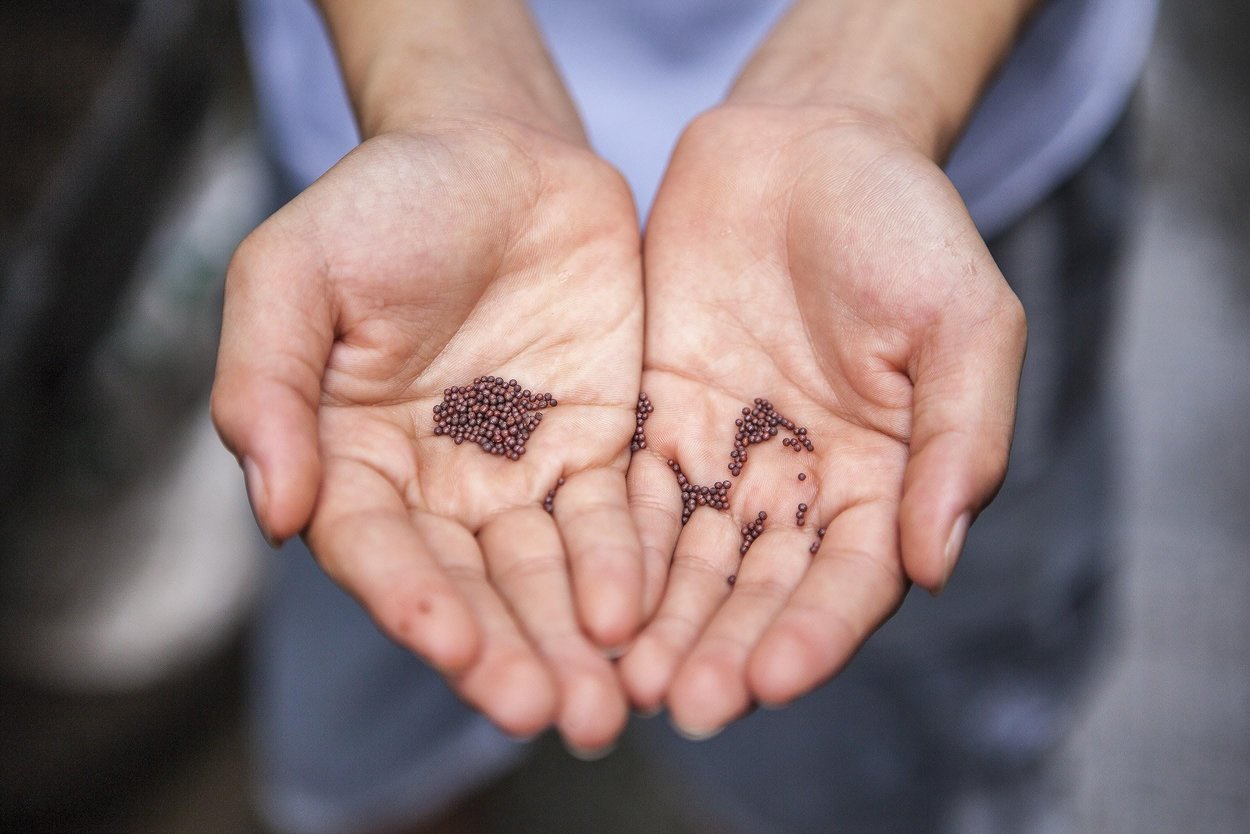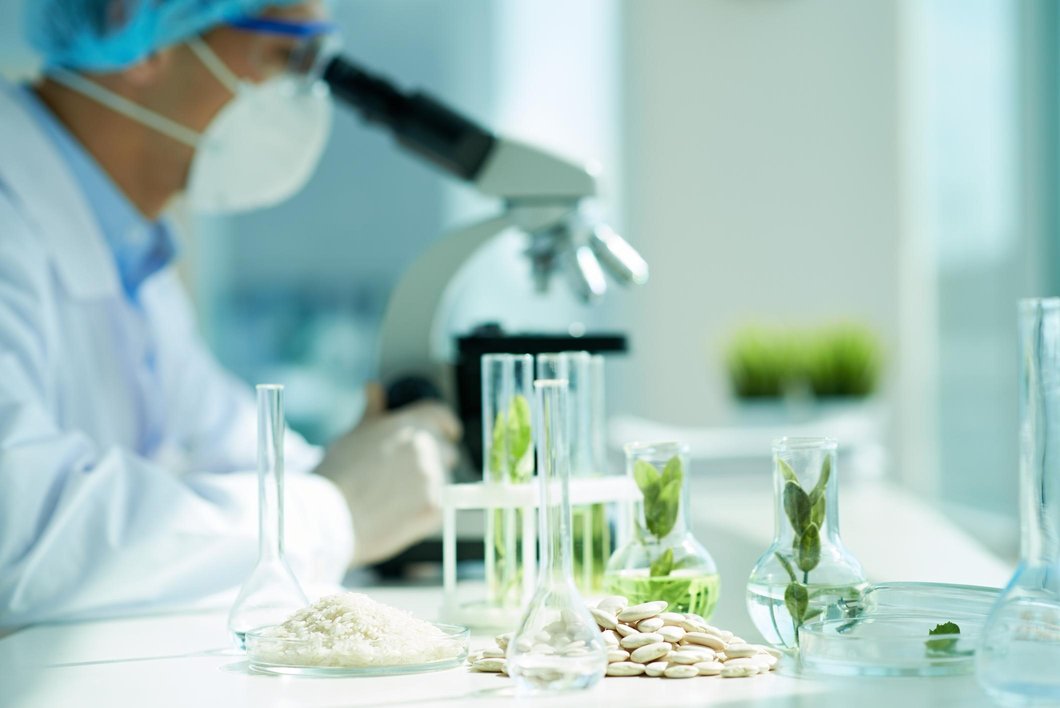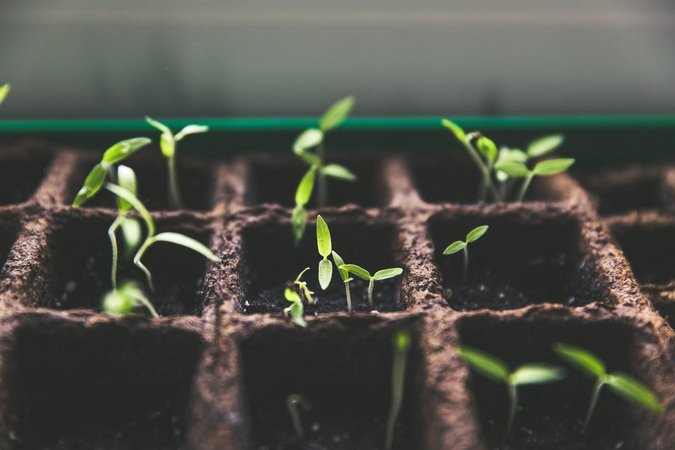GMO, Hybrid & Heirloom Seeds: Which Is Better for My Garden?
 Whether you are new to cultivating your own home garden or have expertly cultivated your own crops for years, you may have heard the terms GMO, Hybrid and Heirloom tossed around. Some swear by one type of seed over the others, but you may be asking yourself what is the difference between all three? We’ll explain everything you need to know before deciding which type of seed is best for your garden.
Whether you are new to cultivating your own home garden or have expertly cultivated your own crops for years, you may have heard the terms GMO, Hybrid and Heirloom tossed around. Some swear by one type of seed over the others, but you may be asking yourself what is the difference between all three? We’ll explain everything you need to know before deciding which type of seed is best for your garden.
GMO Seeds
 This type of seed is less commonly used by small farmers. Genetically modified organisms are organisms whose genetic structure has been altered in a lab through molecular genetic techniques such as gene splicing, cloning and protein engineering. GMO seeds are typically patented by large corporations such as Monsanto since they are most often used for commercial, large-scale farming. This type of seeds is only able to produce one generation of crops with the same genetic characteristics, and seeds must be newly purchased for every harvest. GMO seeds are controversial yet defended by some who believe small farmers have been genetically modifying seeds for years. However, this is not the case, and many confuse GMO seeds with Hybrid seeds.
This type of seed is less commonly used by small farmers. Genetically modified organisms are organisms whose genetic structure has been altered in a lab through molecular genetic techniques such as gene splicing, cloning and protein engineering. GMO seeds are typically patented by large corporations such as Monsanto since they are most often used for commercial, large-scale farming. This type of seeds is only able to produce one generation of crops with the same genetic characteristics, and seeds must be newly purchased for every harvest. GMO seeds are controversial yet defended by some who believe small farmers have been genetically modifying seeds for years. However, this is not the case, and many confuse GMO seeds with Hybrid seeds.
Hybrid Seeds

Similar to GMO seeds, hybrid seeds are modified to be different from traditional seeds and are altered to produce crops with enhanced genetic traits. However, the key difference between GMO and Hybrid seeds is that Hybrid seeds are modified through selective breeding using only cross-pollination of different yet related plant varieties. Selective breeding is achieved by intentional and precisely controlled cross-pollination methods that are usually carried out in a greenhouse to prevent further pollination from insects or wind currents. Cultivators take two parent plants and try to pass on the best traits from each parent plant to the offspring. It can be achieved through natural methods but is most often done artificially and in a controlled setting. The purpose is to create plants with a larger size, increased disease immunity, higher production yield, faster maturation or different flavor. Hybrid seeds yield many benefits to farmers, but sustainability is not one of them. These seeds are not capable of passing on those enhanced genetic traits from generation to generation, which means farmers have to buy new seeds after each harvest. If you are looking for a one-time purchase seed, heirloom seeds are the answer for you.
Heirloom Seeds
 The distinguishing difference between heirloom seeds and other types of seeds is that heirloom seeds retain the same genetic traits across each generation because they breed true. They are not to be confused with organic seeds as hybrid, GMO and heirloom seeds refer to the lineage of the seeds, whereas organic refers to the cultivation practices of the crops. Similar to hybrid seeds, they are also subject to cross-pollination, but only by natural methods such as insects and wind currents. In fact, natural cross-pollination is responsible for preserving the genetic diversity of the plant. This process allows the seed to develop the ability to change and adapt to changing environmental conditions, such as sun, temperature and water supply. Heirloom seeds are actually cheaper and yield crops that are tastier and offer more nutritional value. They have usually been around for at least 50 years and are specific to a certain geographical location. Heirloom seeds are the optimal option for small farmers and backyard farmers concerned with sustainability.
The distinguishing difference between heirloom seeds and other types of seeds is that heirloom seeds retain the same genetic traits across each generation because they breed true. They are not to be confused with organic seeds as hybrid, GMO and heirloom seeds refer to the lineage of the seeds, whereas organic refers to the cultivation practices of the crops. Similar to hybrid seeds, they are also subject to cross-pollination, but only by natural methods such as insects and wind currents. In fact, natural cross-pollination is responsible for preserving the genetic diversity of the plant. This process allows the seed to develop the ability to change and adapt to changing environmental conditions, such as sun, temperature and water supply. Heirloom seeds are actually cheaper and yield crops that are tastier and offer more nutritional value. They have usually been around for at least 50 years and are specific to a certain geographical location. Heirloom seeds are the optimal option for small farmers and backyard farmers concerned with sustainability.